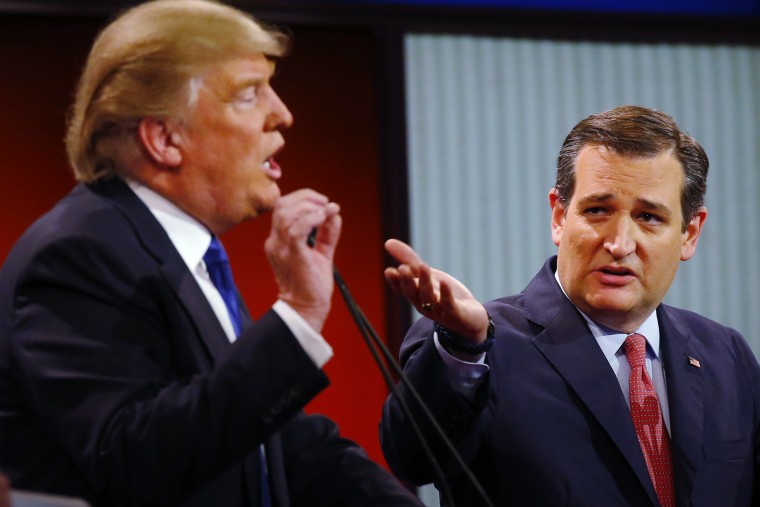Hillary Clinton delivered remarks in Seattle last night and responded to the deadly terrorism in Brussels, while also pushing back against Republican rhetoric. "The last thing we need, my friends, are leaders who incite more fear," Clinton
said. "In the face of terror, America doesn't panic. We don't build walls or turn our backs on our allies."
It was, to be sure, a nice sentiment, though Republicans spent the day arguing that inciting fear and panicking are perfectly viable options. The
Huffington Post had a
good summary:
Many people opened their hearts and their doors to those affected by Tuesday’s Brussels attacks that killed more than 30 and injured at least 200 people on Tuesday. Some even donated blood. But prominent conservatives used the tragedy to draw links with refugees and border closures, and promote other extremist agendas. It’s an eery reminder of the hateful rhetoric that abounded in the wake of the November attacks on Paris, when more than half of U.S. governors demanded to stop all Syrian refugee arrivals.
It's safe to say this wasn't the right's finest hour. The top two Republican presidential candidates spent much of yesterday taking turns saying offensive things. Donald Trump and Ted Cruz collectively talked up torture, border closings, and discrimination, with minimal regard for reason. The Texas senator even endorsed the idea that security conditions would improve if only President Obama would
adopt the rhetorical phrasing that conservatives prefer.
In other words, in the face of deadly terrorism, leading Republicans generally slipped into incoherence. Offered an opportunity to show their steady hands when the pressure is on, the GOP's would-be presidents gave in to their worst instincts and put on a hysterical show for the public.
And as this relates to the 2016 presidential race, it was an elucidating development. Long, national campaigns offer insights into how candidates think and react to unpredictable circumstances. Do they show grace under fire, or do they buckle as the temperature rises?
President Obama's unflappable demeanor has annoyed pundits for years -- I'm convinced a variety of commentators think it'd be a good thing to see him fly off the handle and get completely hysterical -- but over the course of the last decade, Americans have learned that this president knows how to keep his cool, no matter how intense the circumstances. Few would make a similar assessment of the Republicans who hope to succeed him.
But it's the recent pattern that rankles most. How many times have we seen Republicans panic over the last few years when confronted with alarming conditions?
Back in November, NBC's First Read team published
a good piece that continues to ring true:
Americans are frightened and suspicious of foreigners entering the country from abroad. The political press is blaming President Obama for not doing enough. Rival politicians with presidential ambitions are seizing on the issue. Sounds like the political aftermath after Friday's terrorist attacks in Paris, right? But those same descriptions -- fear, suspicion, blame, and political opportunism -- apply to what happened just a year ago during the Ebola scare.
And those descriptions apply to what happened after San Bernardino. And during the child-migrant crisis. And yesterday.
As we
discussed after the Paris attacks, can anyone think of the last time GOP officials, en masse, responded to a crisis in a measured, responsible way? It's tempting to point to 2008, when Congress tackled a rescue package for the financial industry, but even then Republicans initially killed the legislation because, they said at the time, Nancy Pelosi
hurt their feelings.
I
continue to believe that when the heat is on, and people are counting on cooler heads to show wisdom and good judgment, there are some political leaders who've demonstrated an ability to show grace under fire -- just as there's a parallel group of leaders who have a track record of curling up in a ball and crying when the going gets tough.
Any voters wondering who's made of sterner stuff now have their answer.
